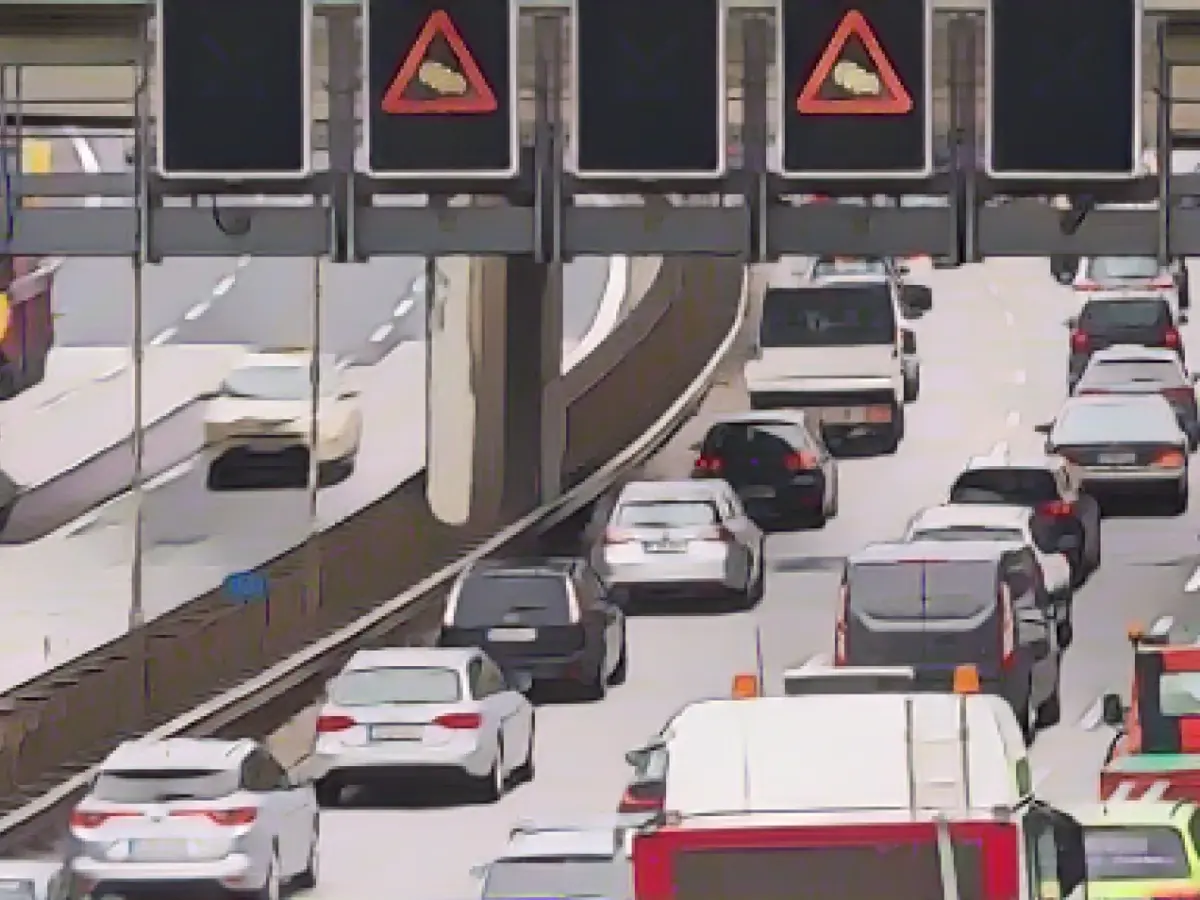Toward a Fair Car Retrieval Fee Ruling
The German Federal Court of Justice (BGH) is poised to deliver a verdict today on the now-controversial parking fees levied on towed vehicles. At the heart of the case is a dispute between a private towing company in Saxony and a vehicle owner, with the former demanding an eye-watering sum of €4,935 due to the vehicle's prolonged stay on the towing company's premises during a legal dispute.
Bettina Brückner, presiding judge at the BGH, acknowledged the validity of opposing arguments during the Karlsruhe hearing, suggesting the need for a more straightforward resolution. The judge hinted that complicated questions could emerge if the vehicle is parked in a public parking lot and fitted with a parking claw, demanding clarification of matters such as the radius within which a free parking space must be found. Other factors to be considered include the time frame allotted for towing services to locate a suitable space and the parking of expensive cars in unlit commercial areas.
The high amount in dispute stemmed from peculiar circumstances. The vehicle's owner had demanded its return shortly after being towed away, only to have his request denied on the premise of unpaid towing costs and daily parking fees. The dispute lingered on for 329 days, resulting in a steep sum requiring repayment.
ADAC: Varying Storage Fees Across Germany
The regional court had ordered the plaintiff to foot the entire bill. However, the higher regional court issued a revised order, capping the costs at the original towing and storage fees incurred by the company. In a September 2022 ruling, the higher court stipulated that the car could be held only to collect towing costs but not for the duration of exorbitant parking fees.
Although the German automobile club ADAC offers no comprehensive overview of storage costs for towed vehicles across Germany, it is widely acknowledged that they can vary dramatically from one region to another.
Enrichment Insights: Standard Parking Fees for Towed Cars in Germany
Notable instances, such as that of a car abandoned at Berlin's Brandenburg Airport, showcase the substantial parking fees incurred in such facilities:
- First 10 minutes: Free
- 30 minutes: €11
- Hourly rate: €23
- Daily rate: €552.
Handling Disputes Involving Parking Fees
Disagreements related to parking fees engendered by towed vehicles are commonly resolved through the following avenues:
- Parking Management Company: Companies like APCOA Deutschland GmbH, which manage parking at Berlin's Brandenburg Airport, bear responsibility for collecting parking fees. They may deny accountability if the vehicle was abandoned without proper notice, as in the case of the abandoned VW Golf.
- Local Authorities: Local authorities, such as police and district offices, are often involved in identifying the abandoned vehicle's owner and allocating responsibility for the parking fees. However, they may also decline responsibility if they were not informed about the abandoned vehicle in a timely manner.
- Courts: If disputes arise, they can progress to trial, with German courts, such as the BGH, potentially overseeing related cases. The ADAC, a German automobile club, may offer advice or support in resolving these disputes, though they are not directly involved in the legal process.
Court Rulings and Factors Considered
Specific court rulings aren't covered in the provided sources, but German courts generally take the following factors into account:
- Notification: The extent to which the vehicle owner was properly notified about the parking fees.
- Abandonment: Whether the vehicle was abandoned without duly notification.
- Responsibility: Determining who is responsible for the parking fees — the owner or the parking management company.
- Evidence: The availability and strength of evidence to support the parking charges.
In conclusion, disputes involving parking fees for towed vehicles in Germany are typically resolved by parking management companies, local authorities, or courts, depending on the specifics of each case. Understanding the factors considered by the courts is essential to navigating these disputes effectively.








